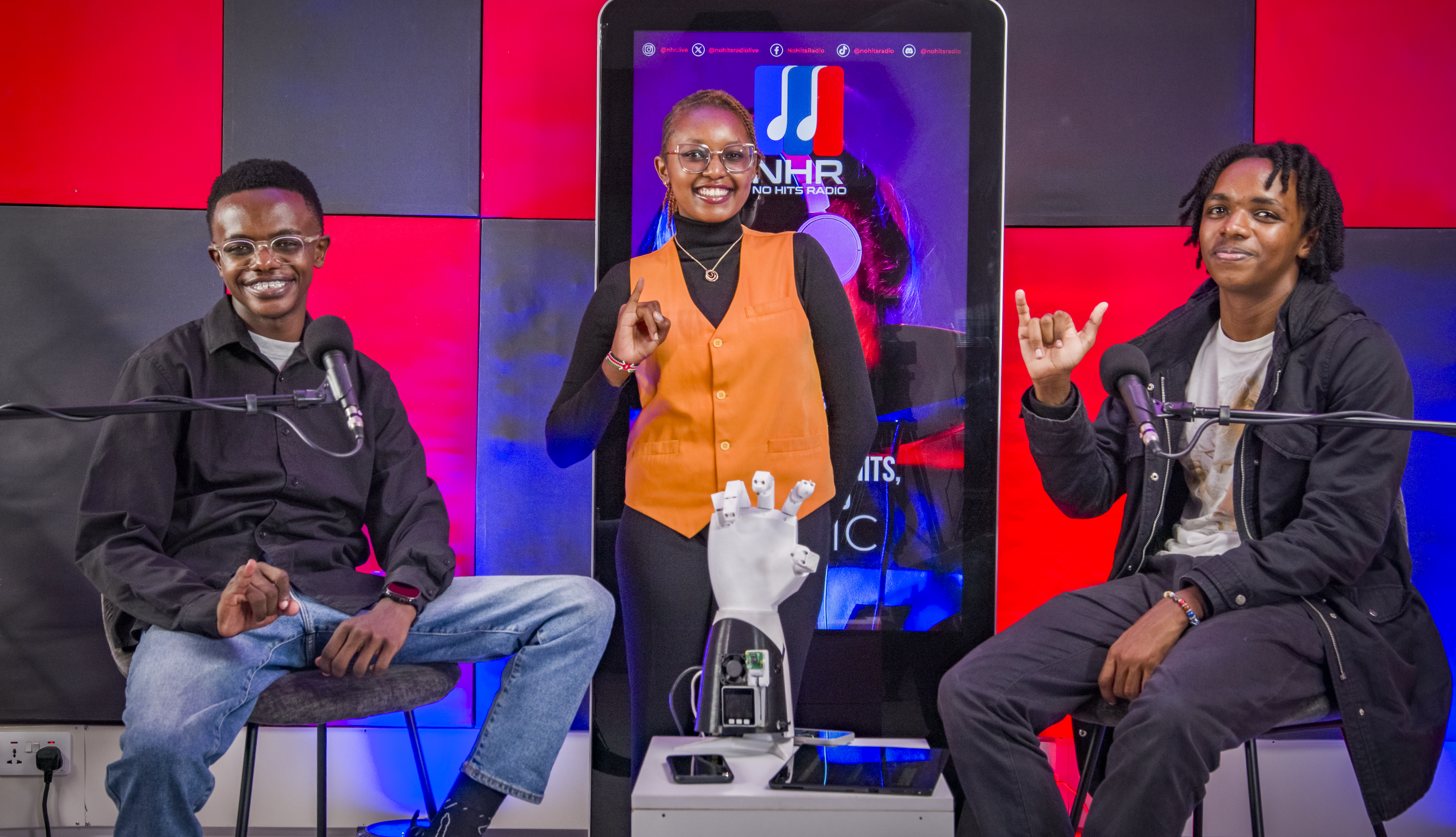advertisement
Innovating For Inclusion, One Gesture At A Time

The textbook strategy for a startup in today’s saturated world, is to find a niche market and provide impact. As the world accelerates into the digital age, it is often the extraordinary feats that leverage on technology that create deep impact. Maxwell Opondo, Founder of Zerobionic, is a prime example of this journey. His passion for robotics is changing lives and opening up new possibilities across Africa, showing how innovation can really make a difference.
As an alumnus of Young Scientist Kenya, Opondo had his eyes set on tech from early on. Making journeys to Sierra Leone and Ghana, it was here that he first used prosthetics to serve amputees. But during this journey, he noticed another gap, individuals with hearing impairments were being systematically left behind, especially in higher education and more so in STEM.
In an interview on No Hit’s, the 21-year-old reveals how that realization sparked something bigger. Expounding on his work in prosthetics, he envisioned a device that would allow seamless communication for those with hearing impairment more so in the technical disciplines. He brought with him Model 4, an early version of what is now Model 12: a robotic prosthetic arm capable of translating spoken words into sign language in real time, complete with visual aids to enhance understanding.
advertisement
The technology itself works on the parameters of both facial expression and hand movement which ensures not only accurate information but also emotional intent. It is with this flagship product that the world has come to hear of Zerobionic, a Kenyan robotic company.
Zerobionic’s impact hasn’t gone unnoticed. In February, Opondo was crowned Young Tech Innovator at the Africa Tech Summit, adding to his earlier win—Gold Award for Access, Diversity & Inclusion at the QS Reimagine Education Awards. But he’s not doing it alone. His team, which includes fellow fourth year student, Norah Kimathi, has had full backing by Strathmore University which provides for their robotics space. Zerobionic has also been propelled forward by having ties to NVIDIA who’ve opened doors for them globally.
As Opondo speaks with a lot of gratefulness to the support his team has received, our conversation shifts into the current technological advancement that is driving their latest advancements; Artificial Intelligence. In the era of large language models, he has been quick to integrate a trio of Application Programming Interface (APIs) into his motorised prosthetic: OpenAI, DeepSeek and Grok. To quote him “Everything autonomous at this point has to have Artificial Intelligence embedded in it… AI was originally being built for robots.”
advertisement
What’s fascinating is that, despite the autonomous capabilities of AI, Opondo still prefers a hands-on approach. He brings his models into classroom environments, testing them in live learning scenarios to refine machine learning in context. This action reaffirms Zerobionic’s mission; to have this tool in the hands of those who need it the most, enabling them to use it where it’s most required.
Opondo being a two-time founder has already had a taste of the investor world before Zerobionic. In the interview, he divulges how they transverse the issue of venture capitalism by avoiding it. But then what does it truly mean to build technology for inclusion in a world that often prioritizes profit over people? And still, how does one scale such a vision without compromising its soul?
For those answers, and a few surprises, be sure to watch the interview on YouTube at Nohitsradio.